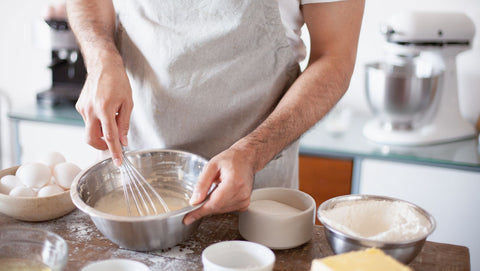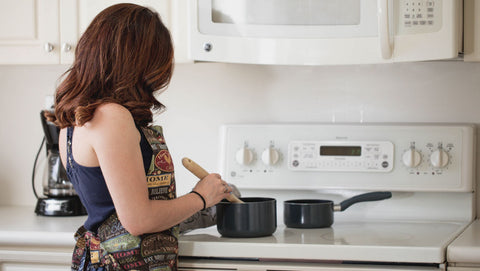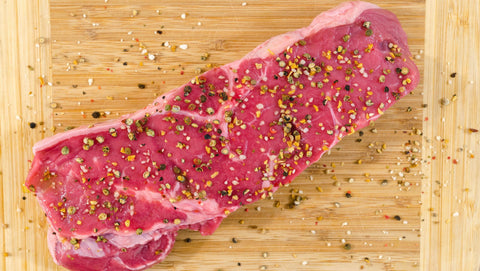Following the instructions on a simple cookie or cake recipe may seem easy, but it’s not. To be honest, working with baked goods are more complicated than preparing a simple pasta dish for date night. But don’t be intimidated because I got your back.
I rounded up some of the best baking tips that you can use the next time you attempt to make cakes, cookies, pies, and other baked goods at home.
Let’s get started!
1. Use room temperature ingredients
When the recipe says that some of the ingredients must be at room temperature, make sure to follow it. Leave those ingredients on the table or countertop overnight if you have time. If you forgot to do this, you can also improvise. For instance, for cold eggs, you can run them under tap water for a few minutes to reach the right temperature. For butter, try softening it using the microwave. However, keep a close eye on it so that it won’t get too soft.
2. Know more about leavening agents
Leavening agents, such as baking powder and baking soda, are not interchangeable. The former is used in recipes that don’t have acidic ingredients since it only needs liquid to activate. The latter, on the other hand, needs acidic ingredients and used in baked goods that contain cocoa powder, lemon juice, butter milk and more. Take note of this so that you won’t interchange them accidentally.
3. Measure properly
This is one of the most important rules in baking – measure the ingredients properly. A digital scale can help you with this. But if you don’t have one, you can also use the spoon and level method wherein you’ll scoop the ingredients, put them in a measuring cup, and sweep the top with a spatula. This may seem like a daunting task, but it’s required. If you didn’t measure your ingredients, a lot of things might go wrong. For liquid ingredients, you can use clear measuring cups with gradations on the side.
4. Invest in high-quality bakeware
Thin sheet trays and flimsy baking pans don’t conduct heat efficiently. As a result, your pie, pastries, cookies, or cake won’t be cooked properly. So, make sure to invest in high-quality bakeware. They are a bit expensive, but you will be able to use them for a long time.
5. Don’t overmix
Overmixing can make your baked goods chewy or tough in texture. So, do not mix your batter too much, especially if the recipe says so. You don’t want your muffins or cakes to be tender. For biscuits and scones, you must not overwork the dough so that the gluten won’t get activated and cause flakiness on your baked goods.
6. Be careful with substitutions
If a recipe specifies the sugar, butter, flour, or other ingredients on the list, make sure to follow it. There is probably a good reason for it. Yes, do not substitute ingredients. For instance, if the recipe says to mix baking powder with self-rising flour, follow it. Don’t try to substitute one of them with plain flour because your cake won’t rise.
Another example is for sugar. There are different kinds of sugar, and they offer various textures and flavors. If you use the wrong one or substitute it from another type, the outcome of your baked goods will get affected drastically. On the other hand, if you’re substituting salted butter for an unsalted one, make sure to reduce the amount of extra salt by adding water.
Take your baking skills to the next level. Follow these baking tips and be a pro baker at home in no time!



